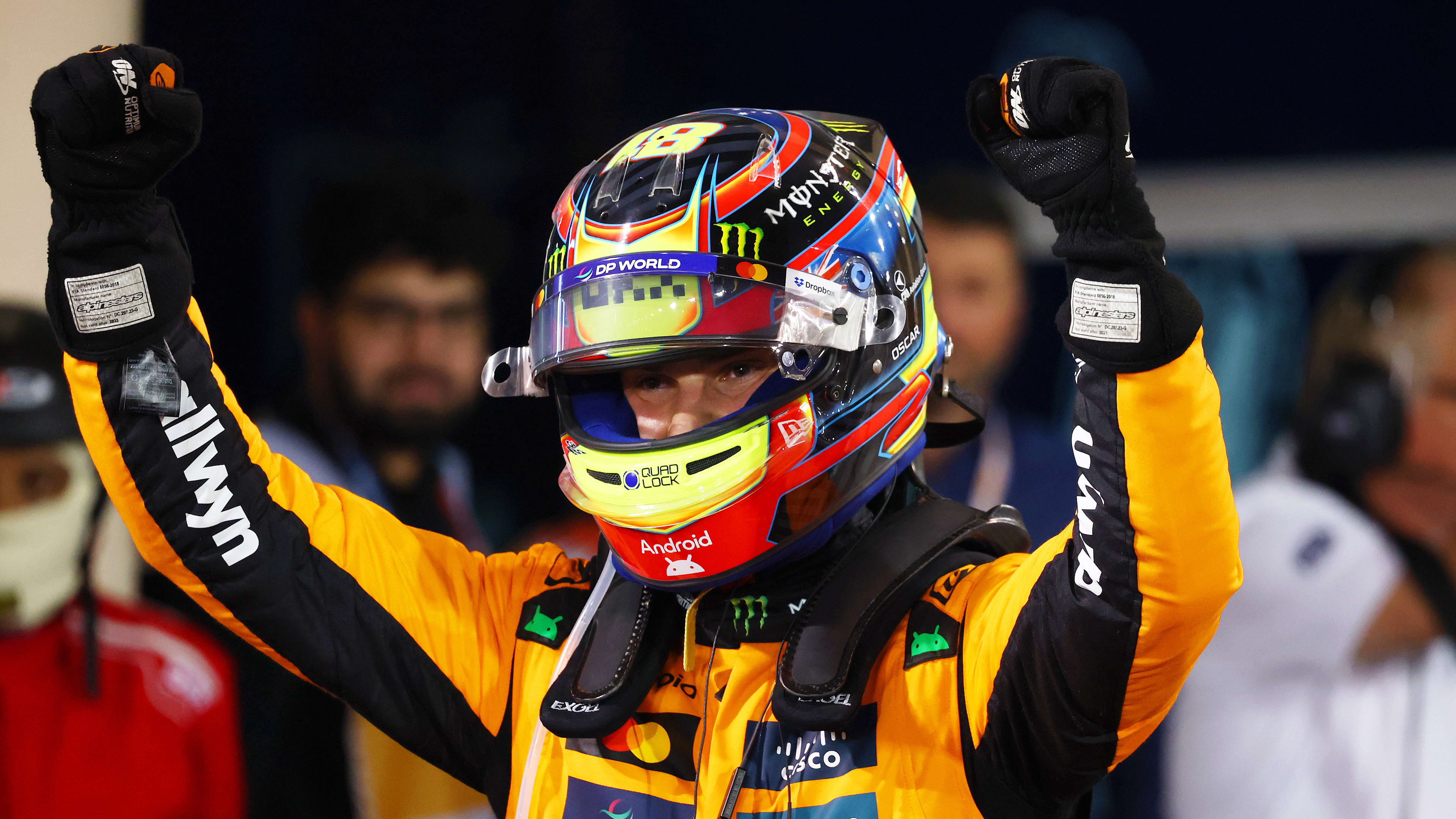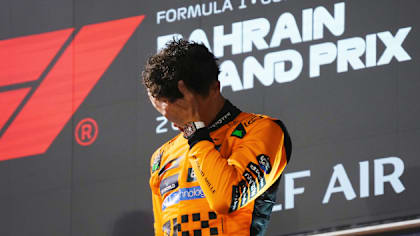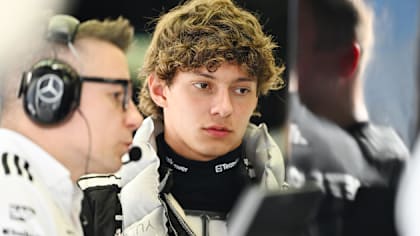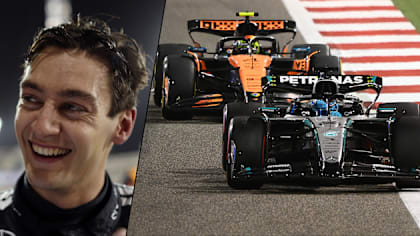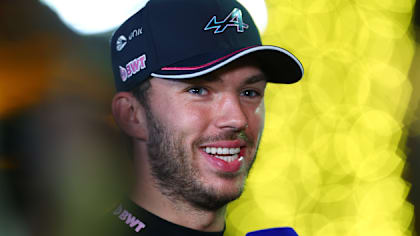
Feature
MONDAY MORNING DEBRIEF: How Russell’s Singapore gamble ended up helping everyone except himself

Share

The effects of the heavy rainfall a couple of hours before the race shaped the Singapore Grand Prix into two halves: an intermediate-shod first and a slick-tyred second, with an unusual uniformity of strategy between the teams.
Even though the rain had ceased by the time the Grand Prix began, the track took an inordinate amount of time to dry sufficiently for slicks. So the first stint was all about running the inters far longer than would normally be the case. The slick-shod stint was all about driving on the dry line and being limited in any passing attempts by how treacherous it remained off-line.
Red Bull’s Sergio Perez prevailed in both halves of the race over Charles Leclerc’s Ferrari. With passing proving impossible on track, Leclerc’s only real chance of getting by would have been if he’d been able to get ahead at the pit stops.
He came in a lap before, trying for the undercut. But the overcut of Perez’s worn but warm inters over Leclerc’s fresh but cold slicks retained him the lead.
The delineating point between the inters and slick parts of the race was unusually uniform – and that can be almost totally explained by George Russell’s race.
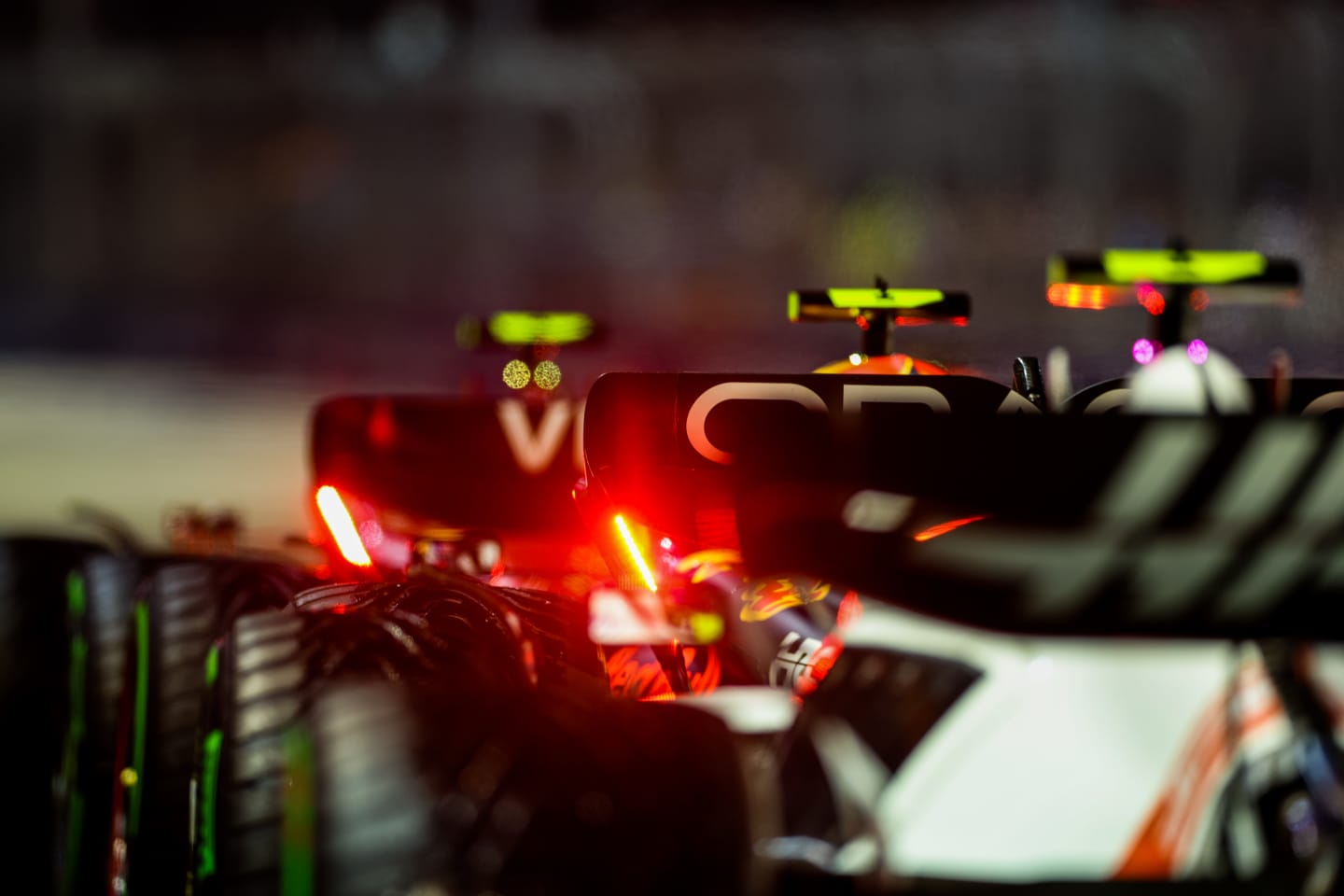
Intermediate tyres were needed for the start of the race with the track sopping wet
Mercedes started him from the pit lane after fitting a new power unit, given that he’d qualified only 11th. He made relatively modest progress and the only chance to perhaps vault many places might have been to gamble early on the change to slicks, hoping that the track was ready when a Virtual Safety Car (for Fernando Alonso’s broken-down Alpine) allowed him a saving of 10s to the field over a normal pit stop. This was Lap 21.
That 10s saving from stopping when the rest of the field was restricted to a 40% reduction in speed was quickly gobbled up by how gripless the cold slick medium compound tyres proved to be on a track which was taking so long to dry thanks to the humidity and absence of sunlight.
But the significant thing was that Russell’s sector times allowed everyone else to monitor exactly when the time for slicks would be. “I think if George wasn't out there, there will be a lot more people pitting earlier,” Perez later observed.
Ten laps after his stop Russell was still 5s off the pace of the leaders. The way that deficit was split between the three sectors gave a stark picture of where the problem lay.
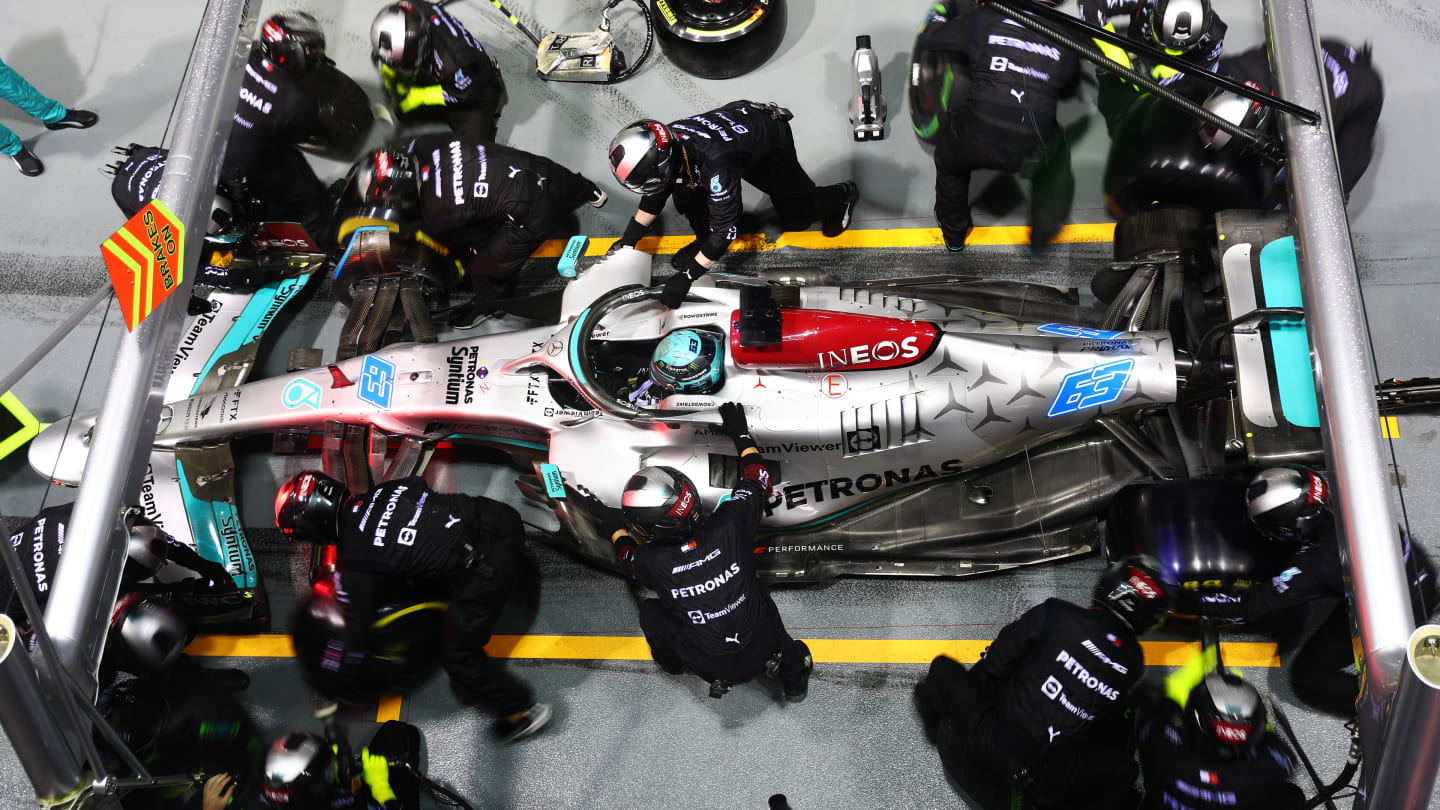
Russell was the first to pit for slicks - with his times closely observed by the rest of the pit lane
In sector 1 on the 32nd lap he was 0.7s slower than Perez. In the middle sector he was actually 0.1s quicker. But in the tight twists of the final sector where most of the water remained, he was 1.4s slower. One lap later, however, he set the fastest lap of the race so far. That was the signal: the track was finally ready for slicks.
Without Russell out there as the guinea pig, there would surely have been a far greater strategic variation between the teams.
HIGHLIGHTS: Watch the action from the Singapore Grand Prix as Perez fends off Leclerc for victory
“George's race was frustrating,” said Mercedes trackside engineering chief Andrew Shovlin. “There were points where it looked like he was going to be able to make good progress, but he was also finding it tough to get through traffic. The switch to medium was a gamble, he did a great job to keep it on the track but ultimately, we got it wrong and called it way too early.
“However, he did have good pace in the tricky conditions, and it looked like we would have at least got back into the points as [late in the race] he was pulling the cars ahead by many seconds a lap. Unfortunately, that hope was short-lived when he had contact with Mick [Schumacher] that caused a puncture.”
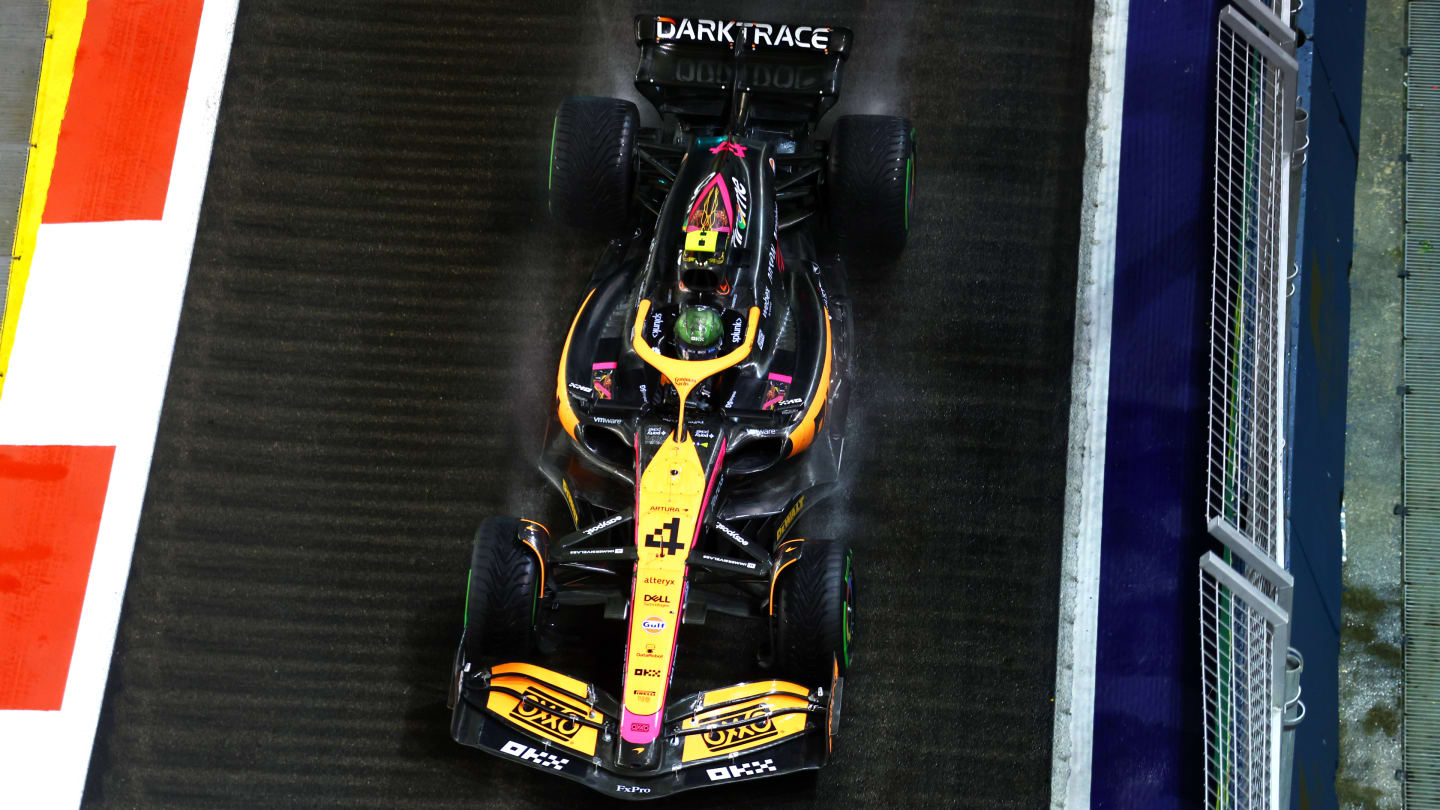
McLaren's decision to pit as late as possible leapfrogged them ahead of much of the midfield
For the others, there remained just one little strategic nicety after Russell’s progress had illuminated the way to go: but it was a very important one. Even though the track was ready for slicks, that did not mean a new set of slicks would be faster on the out-lap than a set of warm inters.
So the trick was to wait and hope the others were tempted to dive in while you stayed out. Ferrari had no other realistic option but to try for the undercut, as there was no way of passing on track. It wouldn’t have worked even without Leclerc’s two second delay as a result of running past his marks on his stop.
AlphaTauri pitted both its cars at the first opportunity – losing Pierre Gasly and Yuki Tsunoda several places.
“Everything [was] in our hands and we threw it away,” said Gasly who had been running eighth, “because we decided to box too early. We took a gamble in a moment where we didn’t need to. We boxed, everybody stayed out on track and we got overcut by four cars.”
McLaren were the last of anyone to pit – with both cars. This helped Lando Norris retain fourth and jumped Daniel Ricciardo many places to an ultimate fifth. Ricciardo can thank Russell for that.
YOU MIGHT ALSO LIKE
News Norris rues ‘messy race’ after P3 finish in Bahrain as he vows to ‘step it up’ at Saudi Arabian GP
News Antonelli left ‘confused’ by Bahrain strategy calls as three-stop strategy sees rookie miss out on points
FeatureF1 Unlocked MONDAY MORNING DEBRIEF: How Russell held onto a brilliant P2 in Bahrain – despite car failures, tyre woes and a charging Norris on his tail
News Gasly ‘very happy’ to score Alpine’s first points of the season with P7 in Bahrain after ‘competitive’ weekend
